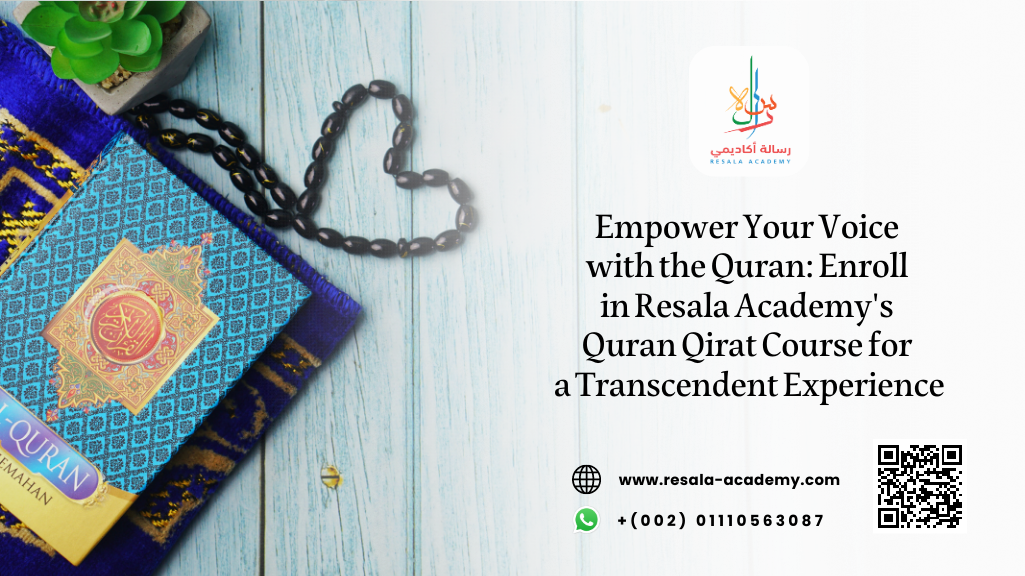Table of Contents
How Many Pages Is the Quran? A Guide for Non-Native Speakers Learning Quran Recitation Online
The Quran, the holy book of Islam, is not just a spiritual guide but also a linguistic and literary masterpiece. For non-native speakers embarking on the journey of learning Quran recitation online, one of the most common questions is: How many pages is the Quran?
This question, while seemingly simple, opens the door to a deeper understanding of the structure, organization, and beauty of the Quranic text.
In this detailed guide, we will explore the number of pages in the Quran, its division into sections, and how this knowledge can benefit non-native speakers learning Quran recitation online.
We’ll also introduce you to Resala Academy, a leading online platform that specializes in teaching Arabic and the Quran to non-native speakers.
How Many Pages Is the Quran?
The standard Mushaf al-Madina, which is the most commonly used printed version of the Quran worldwide, contains 604 pages. This version is printed in a format known as the Uthmani script, which is widely used in the Muslim world for its clarity and beauty.
Key Facts:
- Total Pages: 604
- Total Surahs (Chapters): 114
- Total Juz’ (Parts): 30
- Total Hizb (Halves of Juz’): 60
- Average Lines per Page: 15
This structure is especially helpful for students learning to recite the Quran, as it allows for a systematic and manageable approach to memorization and recitation.
Why Knowing the Number of Pages Matters for Learners
Understanding the layout of the Quran is essential for non-native speakers who are learning Quran recitation online. Here’s why:
Benefits of Knowing the Quran’s Page Count:
- Structured Learning: Breaking the Quran into 604 pages allows learners to set realistic daily goals.
- Memorization Planning: Many students aim to memorize a page or half a page daily.
- Recitation Practice: Knowing the page count helps in tracking progress during recitation.
- Tajweed Application: Each page offers a new opportunity to apply Tajweed rules in context.
Quranic Structure: A Deeper Look
The Quran is not divided randomly. Its structure is divinely inspired and meticulously preserved.
Divisions of the Quran:
- Juz’ (جزء): There are 30 Juz’ in the Quran, each containing about 20 pages.
- Hizb (حزب): Each Juz’ is divided into two Hizb, totaling 60 Hizb.
- Surahs (سور): The Quran has 114 Surahs, ranging in length from a few verses to several pages.
- Ayahs (آيات): The total number of verses is approximately 6,236, though the count may vary slightly depending on the method of counting.
This division makes the Quran accessible and easier to navigate, especially for those learning online.
Understanding the Quran’s Layout: From Pages to Chapters
For learners exploring the sacred text, one of the most frequently asked questions is: How many pages is the Quran? Understanding this not only helps in planning your recitation but also gives you a clearer picture of how the Quran is structured for ease of memorization and study. Below is a breakdown of the Quran’s layout, with a focus on its pages, chapters, and parts (Juz’)—essential knowledge for non-native speakers learning Quran recitation online.
Key Insights into the Quran’s Structure:
- Total Number of Pages:
- The Quran, in its standard Uthmani script (Mushaf al-Madina), consists of exactly 604 pages.
- This uniformity in page count is crucial for global consistency in memorization and recitation.
- How Many Chapters in the Quran?
- The Quran contains 114 chapters, known as Surahs, each varying in length and theme.
- Surahs range from Surah Al-Kawthar (the shortest with 3 verses) to Surah Al-Baqarah (the longest with 286 verses).
- Each chapter is a self-contained unit, yet all are interconnected in spiritual and thematic harmony.
- How Many Pages Is a Juz in the Quran?
- The Quran is divided into 30 Juz’, and each Juz’ contains approximately 20 pages.
- This division allows learners to set manageable daily goals, such as reading or memorizing one Juz’ per month to complete the Quran in a year.
- How Many Hizbs in the Quran?
- Each Juz’ is further divided into 2 Hizbs, totaling 60 Hizbs across the Quran.
- This subdivision is especially helpful for structured recitation and review cycles.
- Average Lines per Page:
- Each page typically contains 15 lines, making it easier for learners to focus on a consistent visual layout during recitation.
- Page Distribution Across Surahs:
- Some Surahs span multiple pages (e.g., Surah Al-Baqarah spans over 48 pages), while others occupy just a fraction of a page.
- This variation allows for flexibility in lesson planning and recitation pacing.
- Why Page Count Matters for Non-Native Speakers:
- Knowing how many pages is the Quran enables learners to break down their study into achievable milestones.
- It also helps in setting up daily, weekly, or monthly goals for reading, memorization, and revision.
- Digital Quran Apps and Page Consistency:
- Most digital Quran apps follow the 604-page format, ensuring consistency across platforms.
- This is particularly beneficial for online learners using tools like Resala Academy’s digital resources.
Strategic Learning Through Quranic Page Structure
For non-native speakers, especially those enrolled in online Quran classes, understanding the Quran’s structural layout is a strategic advantage. It empowers learners to approach the Quran with clarity, confidence, and a sense of purpose. Let’s explore how this knowledge enhances your learning experience.
Benefits of Knowing the Quran’s Page and Chapter Structure:
- Efficient Time Management:
- By understanding that each Juz’ is about 20 pages, students can allocate time accordingly, whether they aim to complete a Juz’ weekly or monthly.
- Customized Learning Plans:
- Teachers at Resala Academy use the 604-page structure to tailor lesson plans based on the students’ pace and goals.
- Enhanced Memorization Techniques:
- Memorizing one page per day allows students to complete the Quran in just under two years.
- For faster learners, memorizing two pages daily shortens the journey to just 10 months.
- Tajweed Practice Per Page:
- Each page offers a new opportunity to practice and refine Tajweed rules, such as Ikhfa, Idgham, and Qalqalah.
- Visual Familiarity:
- Repeated exposure to the same page layout helps in visual memorization, a technique widely used by Huffaz (those who memorize the Quran).
- Spiritual Motivation:
- Tracking your progress through the Quran’s 604 pages provides a tangible sense of achievement and spiritual growth.
- Goal-Oriented Learning:
- Knowing how many chapters in the Quran (114 Surahs) helps students set chapter-based goals, such as mastering one Surah per week.
- Structured Review Cycles:
- With 30 Juz’, learners can review one Juz’ per day during Ramadan, completing the Quran in a month—a common practice among Muslims.
- Consistency Across Platforms:
- Whether using a physical Mushaf or a digital app, the 604-page format ensures that learners and teachers are always on the same page—literally and figuratively.
- Support from Online Academies:
- Institutions like Resala Academy leverage this structural knowledge to deliver personalized, effective, and engaging Quran learning experiences for non-native speakers.
Learning Quran Recitation Online as a Non-Native Speaker
For non-native speakers, learning to recite the Quran can be a challenging yet rewarding experience. Online platforms like Resala Academy make this journey smoother and more effective.
Common Challenges:
- Pronunciation difficulties
- Understanding Tajweed rules
- Lack of Arabic vocabulary
- Inconsistent practice
Solutions Offered by Online Learning:
- Qualified Native Teachers: Learn from certified Arabic and Quran instructors.
- Flexible Scheduling: Learn at your own pace and time.
- Interactive Tools: Use digital Mushafs, Tajweed apps, and recitation recordings.
- Progress Tracking: Monitor your recitation improvement page by page.
Quranic Evidence: The Importance of Recitation
The Quran itself emphasizes the importance of proper recitation and understanding.
Surah Al-Muzzammil (73:4):
وَرَتِّلِ الْقُرْآنَ تَرْتِيلًا
“And recite the Quran with measured recitation.”
Surah Al-Muzzammil 73:4
This verse highlights the importance of Tarteel, or slow, deliberate recitation—a skill that non-native speakers can develop through structured online learning.
Hadith on Quran Recitation:
The Prophet Muhammad ﷺ said:
“ خَيْرُكُمْ مَنْ تَعَلَّمَ الْقُرْآنَ وَعَلَّمَهُ ”.
“The best among you are those who learn the Quran and teach it.”
(Sahih al-Bukhari 5027)
This Hadith underscores the immense reward in learning and teaching the Quran, making it a noble pursuit for all Muslims, regardless of their native language.
Tips for Non-Native Speakers Learning Quran Recitation
📅 Set a daily goal (e.g., 1 page per day)
🎧 Listen to expert reciters like Mishary Alafasy
📝 Keep a Quran journal to track progress
📖 Use color-coded Tajweed Mushafs
👨🏫 Enroll in structured courses like those at Resala Academy
Struggling with the Tashahud? Discover simple, effective techniques tailored for non-native Muslims to memorize it with ease and confidence—start your journey today!
Resala Academy: Your Gateway to Mastering Quran Recitation
Resala Academy is a premier online platform dedicated to teaching Arabic and the Quran to non-native speakers. Whether you’re a beginner or looking to refine your recitation, Resala Academy offers personalized courses tailored to your needs.
Features of Resala Academy:
- Native Arabic-speaking instructors
- One-on-one Quran recitation classes
- Courses in Tajweed, Hifz, and Tafsir
- Female teachers are available for sisters
- Free trial classes
- Certificate upon completion
Turn Every Page into a Spiritual Victory with Resala Academy
Start your journey today! Whether you want to recite one page a day or memorize the entire Quran, Resala Academy will guide you every step of the way.
Join thousands of students worldwide who are mastering Quran recitation from the comfort of their homes.
📩 Ready to start? Book your free trial now and take the first step toward mastering the Quran.
Frequently Asked Questions (FAQs)
1. How many pages is the Quran in the standard Mushaf?
The standard Quran (Mushaf al-Madina) contains 604 pages, divided into 30 Juz’ and 114 Surahs. This format is widely used for recitation and memorization.
2. Can I learn Quran recitation online as a beginner?
Absolutely! Platforms like Resala Academy specialize in teaching Quran recitation to beginners, especially non-native speakers. They offer step-by-step guidance with native instructors.
3. How long does it take to memorize the Quran page by page?
If you memorize one page per day, you can complete the Quran in about 604 days (roughly 1 year and 8 months). With consistent effort and guidance, this goal is achievable.
4. What is the best way to learn Tajweed rules online?
The best way is through live classes with qualified teachers, like those at Resala Academy. They offer interactive lessons, feedback, and practice sessions.
5. Is it necessary to understand Arabic to recite the Quran?
While understanding Arabic enhances your connection with the Quran, it is not a prerequisite for recitation. However, learning Arabic alongside Quran recitation is highly encouraged and offered by Resala Academy.
Conclusion
Understanding how many pages is the Quran is more than a numerical curiosity—it’s the first step in planning your journey through the divine words of Allah. For non-native speakers, this knowledge provides clarity, structure, and motivation.
With the right guidance, tools, and dedication, you can transform each page into a milestone of spiritual growth. Resala Academy is here to support you every step of the way, offering expert instruction in Quran recitation, Tajweed, and Arabic language.
📖 Begin your journey today—one page at a time.




